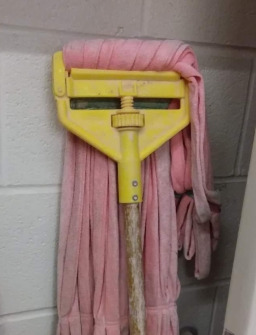
Some of you have read Le Guin's classic, "The Ones Who Walk Away From Omelas." I bring you a story from the perspective of the starved child in the cellar, shying fearfully from a mop.
Also, ponies.
Content Warning: Child abuse.
Preread Credits: Thanks to RDT and GaPJaxie for prereading (and to Punished Bean and TheSmokingGuy for some logistical help.)
Contest notes:
If friendshipping and other types of relationships are admissible to a 'shipping' contest, this story might qualify for Bicyclette's Woman x Mare Shipping Contest.
Do fanfics for Ursula K. Le Guin's "The Ones Who Walk Away From Omelas" qualify for the site's current Science Fiction Contest? Maybe.
Note to moderators about the poetry/verse: I composed the prophecy (or excerpt from the prophecy) myself. Le Guin's own story didn't really need this poem, but I thought my story did.



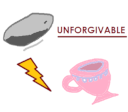


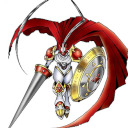
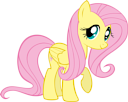
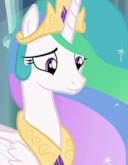


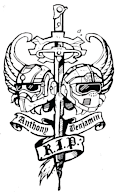
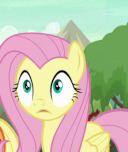

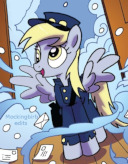



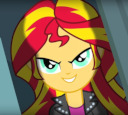


Ahaha- I see this fluttermop everywhere on Instagram
Wow. This was a very strange read! I enjoyed it tremendously.
Damn, that was dark. Reminds me of the movie Room.
The original story is rather short on mention of "Those who actually try to do something about Omelas" and "Those who want to burn Omelas to the ground."
11076505
Given how their society is described in the original story (based as it is on the tacit agreement between all citizens old enough to understand that their collective welfare and happiness depends entirely of upholding the child's suffering), I don't think attempting either of those two things would be conductive to an extended stay within Omelas (most likely, they eventually realize the futility of trying either and face a choice: either let it go or walk away).
Also, I couldn't help but notice that, by the end, the number of mops in the cellar has increased from two to three (kinda makes me wonder about the other mop: is it someone or somepony in particular? or just a regular old mop? Eh, given its lack of importance in the story, probably the latter...)
11077840
If your society depends on the suffering of a child, there is something wrong with your society. And if it is objectively true that society will collapse if there is any attempt to change the system, then the author is visibly putting their thumb on the scale.
(If there's any truth in the original story other than "societies are often built on cruelty and suffering, and their elites spend a lot of time trying to indoctrinate the population in believing there is no other option than the current setup", I'd like to hear it.)
11077886
Actually, Le Guin was inspired by this quote from Dostoyevsky's Brothers Karamazov:
and this similar one from William James (to which she gave credit, as she only vaguely remembered the one from Dostoyevsky):
In a way, her story is a subtle criticism of the widespread literary trope of apparent utopias that are inevitably coming with a catch in the form of some hidden necessary evil (such as the forsaken child, which only features once the narrator has done their laudatory description of Omelas and anticipated the skepticism of the reader, as if its actual purpose was to meet their expectations that such a perfect society simply cannot be).
An unexpected combination of pony meme and classic dystopia. You’d think the result would be a crappost, but you make it work in a way respectful of both Le Guin’s original work and Fluttershy’s character. Thank you for this.
11077886
I got the impression of a self-fulfilling prophecy. Omelas falls without its child because everyone believes it must. I suppose you can add “Never believe your own hype” to the lessons of the original.
11078098
But what exactly is the criticism, save perhaps a reductio ad absurdum by boiling down the whole issue of inherent oppression to one kid being treated badly? Does Le Guin believe a society that is prosperous and happy AND socially just is possible? She certainly seems to be saying that it's not something we're capable of imagining, at least not under current circumstances.
11085957
Theres the old SCP theory about the woman who's supposedly tortured every day without remorse to keep an eldritch entity from eating Earth- and how shes not actually being tortured, but so long as everyone thinks she is, the plan works all the same.
ah, the self-serving callousness, to convince oneself that the deprivation is for the best even for the victim
oof! love how this is, if anything, more callous than the visitor complaining about the child's smell
this is so very grim and saddening. i recognize the detached prose style from other works of yours, and it really works for this passage
something about a system that runs on fear and violence only meeting fearful and violent ends. well, reality is not always so sensible, but that is what allegorical stories are for!
ah, the tragedy! Fluttershy can speak to the animals, but the child is too broken to be within the reach of even her powers.
there is a lot to say here, as with all good literature. Fluttershy is more archetype than character here: the pony avatar of kindness that is a voice to the voiceless. who else but her, to be the one to reach across the divide between fictional worlds and genres?
there's also something to be said about the idea of escapism, as well. the world of My Little Pony is a place where one can imagine the kind of tradeoff that the Omelas allegory is built around does not exist or need to exist. it's a place where Fluttershy's kindness can exist without irony or being a false face that distracts from the cruelty of the world. it's an escapism that i take part in, too, from a life that is objectively pretty good compared to most human lives that have lived! and if there ever were that magic portal, the ethical thing to do would be to send the Cellar Childs of the world in my place, for i can think of none more deserving of that escape.
literature is a conversation, and this story is a reply; one way to fill in the missing piece of how Omelas must seem when starting from the perspective of the child. there is little mention of its idyll and utopia, and they only exist as an abstraction outside of this story's walls; nothing more than the unknown things that the speaking characters hold so dearly that they will justify the cruelty they are complicit in. and the contrast with the feeling of the world of MLP makes the contradiction that much more vibrant. great stuff, birb!
congrats, I've recorded myself reading this story and will be making it an audiobook soon :)
11360549

If it's free for anyone to listen to easily, then thanks and please drop me a link!
If it isn't, then I guess I wouldn't want to thank you.
11361360
I'd never put other peoples IP behind a paywall. It's nearly done and will be on Youtube tomorrow :).